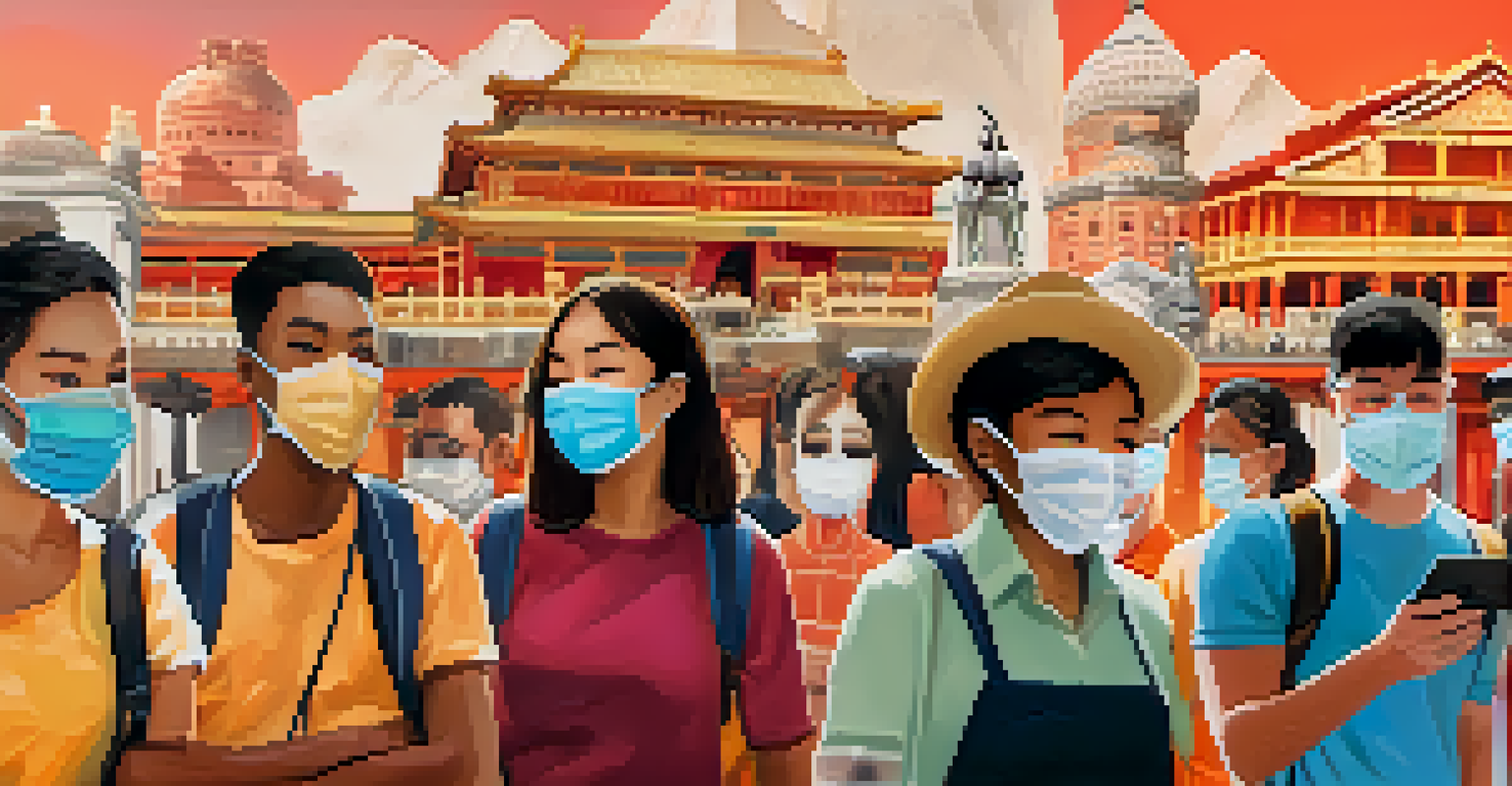Adapting to Changing Travel Regulations Worldwide

Understanding the Importance of Travel Regulations
Travel regulations are essential for ensuring safety and security in a globalized world. They help protect travelers from potential risks and ensure that public health is maintained, especially during events like pandemics. By understanding these regulations, travelers can make informed decisions about their journeys.
Traveling – it leaves you speechless, then turns you into a storyteller.
Every country has its own set of rules that can change rapidly due to various factors, including health crises, political changes, or even natural disasters. For instance, one country might require strict health screenings while another might have more relaxed entry protocols. This complexity can be daunting, but it's crucial for a smooth travel experience.
Staying informed about these regulations not only aids in planning but also helps avoid unexpected complications at borders. By keeping an eye on updates from official sources, travelers can adapt their plans accordingly and ensure a hassle-free journey.
Resources for Tracking Travel Regulation Changes
In today's digital age, information is at our fingertips, and several reliable resources can help track travel regulation changes. Official government websites, such as those of the CDC or the WHO, often provide the latest updates on travel advisories. Additionally, many embassies maintain current information relevant to their citizens traveling abroad.

Travel apps and websites are also stepping up their game. Some platforms aggregate information from multiple sources, providing real-time updates on entry requirements, testing protocols, or quarantine measures. Using these tools can significantly reduce the stress of planning your next trip.
Stay Informed on Travel Regulations
Keeping up with travel regulations through reliable resources can help travelers navigate their journeys smoothly.
Social media can also be a valuable resource—following travel bloggers or influencers who focus on regulatory changes can provide insights and personal experiences that official sources may not cover. Combining these resources allows travelers to stay well-informed and prepared.
Preparing for Unexpected Changes in Travel Plans
Flexibility is vital when it comes to travel in today's environment. Just as one might pack an umbrella for an unexpectedly rainy day, having backup plans for travel can save the day. This could mean booking accommodations with flexible cancellation policies or considering travel insurance that covers unexpected changes.
The journey not the arrival matters.
Travelers should also prepare themselves mentally for potential changes in regulations while abroad. For instance, if a destination suddenly enforces stricter testing requirements, having access to local healthcare services or knowing where to find testing sites can ease some of that anxiety.
Being adaptable doesn't mean abandoning your travel dreams; instead, it empowers you to embrace spontaneity. After all, some of the best travel experiences come from unexpected detours and unplanned adventures!
The Role of Technology in Travel Adaptation
Technology has transformed how travelers adapt to changing regulations. From mobile apps that provide real-time updates to digital health passports, tech tools are making compliance easier. For example, some countries now accept digital vaccination certificates, streamlining entry processes.
Additionally, apps that track flight statuses can alert travelers to last-minute changes, enabling them to respond promptly. This type of proactive approach can help avoid long waits at airports or unexpected delays in travel itineraries.
Prepare for Unexpected Changes
Flexibility and backup plans are essential for managing sudden changes in travel regulations or requirements.
Moreover, virtual travel communities are thriving online, where travelers share experiences, tips, and updates on regulations. Engaging with these communities can enhance your adaptability while providing a sense of connection during uncertain times.
Understanding Visa Requirements and Exemptions
Visa requirements are another crucial aspect of travel regulations that can change frequently. Some countries may issue temporary exemptions or introduce new categories of visas depending on their current situation. For instance, during the COVID-19 pandemic, many nations created special travel corridors for essential workers.
It's essential to verify visa requirements well ahead of your trip, as processing times can vary widely. Some countries may require additional documentation or even proof of vaccination for entry, making early preparation crucial.
Understanding these details can help avoid unpleasant surprises at immigration. Online visa application platforms have made this process easier by allowing travelers to apply and receive updates digitally, making it more efficient and less stressful.
Staying Safe While Traveling Amid Regulatory Changes
Safety should always be a priority when traveling, particularly in an era of changing regulations. Beyond following entry rules, travelers should remain vigilant about their health and safety while on the road. This includes wearing masks, practicing social distancing, and frequently sanitizing hands.
It's also wise to stay informed about the local health situation at your destination. Understanding the risks and the local response can help you navigate your trip more safely. For example, knowing which areas are experiencing outbreaks can guide your itinerary decisions.
Embrace Technology for Travel
Utilizing technology can simplify compliance with travel regulations and enhance the overall travel experience.
Ultimately, practicing safety measures not only protects yourself but also helps to keep others safe. Being a responsible traveler contributes to the well-being of the global community and promotes a healthier travel environment for everyone.
Embracing the Future of Travel Regulations
As the world continues to evolve, so too will travel regulations. While this might seem daunting, it's also an opportunity for travelers to embrace a new era of responsible travel. By adopting sustainable practices and being mindful of their impact, travelers can contribute positively to the destinations they visit.
Looking ahead, technology will likely play an even more significant role in shaping travel regulations. Innovations such as biometric screening and AI-driven health assessments could streamline the travel experience while enhancing safety protocols.

Ultimately, adapting to changing travel regulations isn't just about compliance; it's about fostering a culture of flexibility and understanding. By staying informed and prepared, travelers can navigate this dynamic landscape with confidence and enthusiasm.